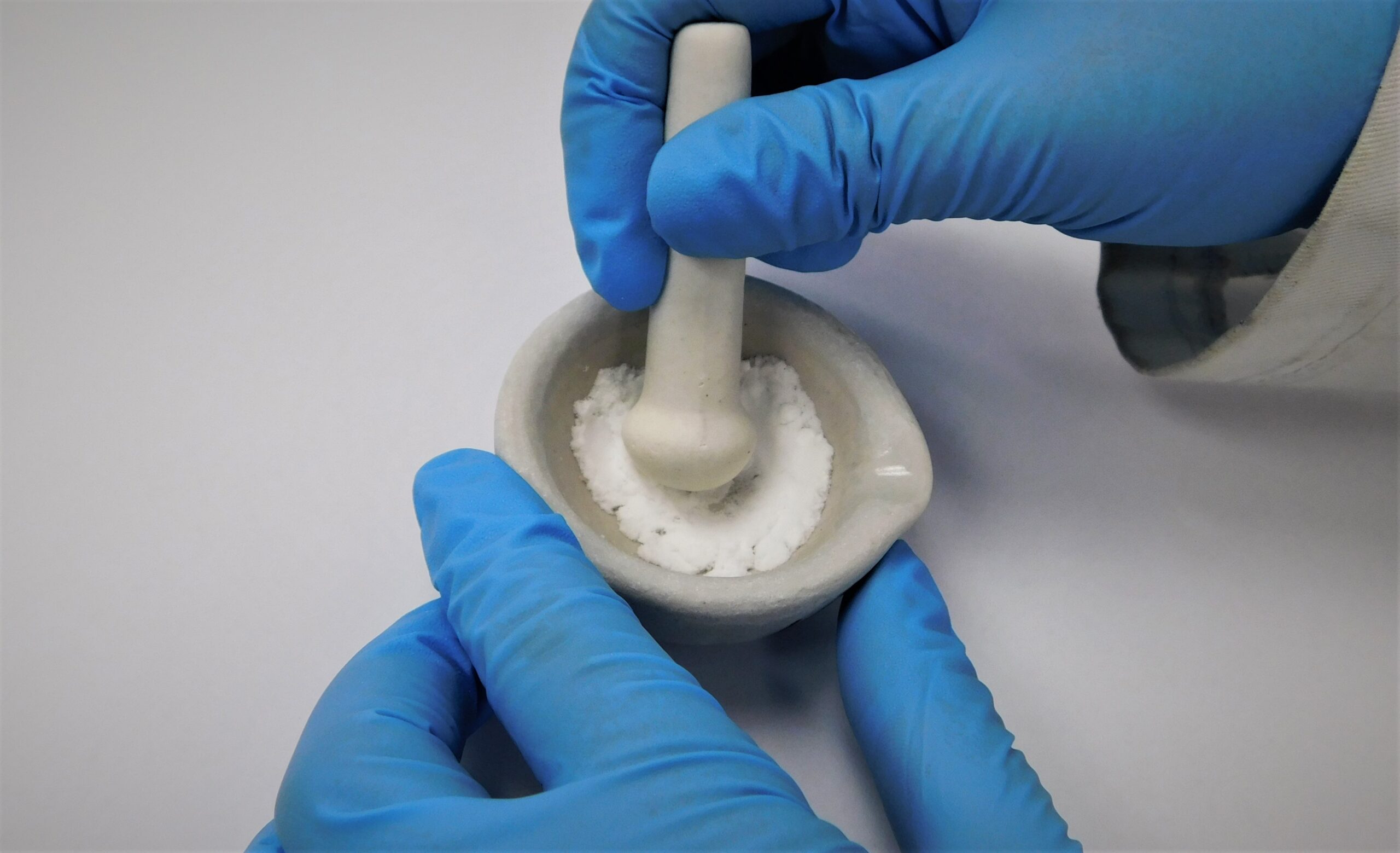Here at NSW Health Pathology we spend a lot of time analysing samples and producing results. Recently we got to see how our work is making a difference on the other side of a very high fence.
Inside a secure facility on the grounds of Sydney’s Parklea Correctional Centre, two young men dressed in prison greens kick a football across a grassed courtyard. Another is busy in a kitchen preparing chickens for roasting, and in a nearby art room a group of men are creating extraordinary paintings.
But despite the razor wire on the fences, they’re not in prison; they’re part of a special drug treatment program overseen by the NSW Drug Court.
Denise Constantinou is the Senior Psychologist at the Parklea Compulsory Drug Treatment Correctional Centre and explains how participants go through three stages of recovery after they arrive at the facility.

“The program runs for a minimum 18 months, with six months spent in each of the three stages,” she said.
“Stage one requires them to participate in therapeutic programs to address their past drug use and offending behaviour.
“We develop their treatment plan in collaboration with them and their adherence to that treatment plan is monitored on a weekly basis.”
Ms Constantinou says participants are required to provide supervised urine samples regularly throughout their treatment to ensure they remain drug free.
Custodial officers collect a urine sample from participants at least twice a week during stage one of the program.
“When they move to stage two the weekly urine analysis actually increases to three times a week because they’re able to access the community,” she explains.
“Then in stage three when they are living out in the community, but still part of the program, the urine analysis continues at a rate of three times a week.
“All those tests happen at the centre so staff can see the participants, assess their behaviour, and ensure they’re not trying to evade detection of drug use.”
Ms Constantinou says staff watch while the men give their urine sample in a specially designed bathroom.


“Some will complain about having to participate – there are some stringent protocols,” she said.
“We’re also very aware that some of our clients have experienced a history of trauma so urinating in front of somebody can be very triggering. So there needs to be some sensitivities around that process.
“But participants also recognise that it does hold them accountable and ‘keeps them on track’. They know that if their drug use is detected there will be consequences in terms of the privileges and rewards that are afforded within the program.”
Ms Constantinou says some of the participants are also working on parenting plans to have contact with their children, so providing urine samples means they can prove they’re staying drug-free.
Samples taken at the centre are checked immediately for drug markers and if there’s a positive indication, the urine is sent to NSW Health Pathology’s Drug Toxicology Unit (DTU) for further testing and analysis to determine what the drug is.
NSW Health Pathology’s Forensic & Analytical Science Service Director of Forensic and Environmental Toxicology Santiago Vazquez says the latest technology at the DTU laboratory ensures results are received by the Parklea centre within days.
“We work with staff at the Compulsory Drug Treatment Correctional Centre to ensure they know how to interpret the results of the urine tests and the reports that we provide,” Dr Vazquez said.
“Our laboratory uses world-leading technology to analyse a wide range of drugs and their metabolites.
“We’re proud to be supporting the work of the NSW Drug Courts and helping to manage the recovery of participants.”
Since the drug treatment program began in 2006, the Parklea CDTCC has collected more than 80,000 urine samples for testing.




